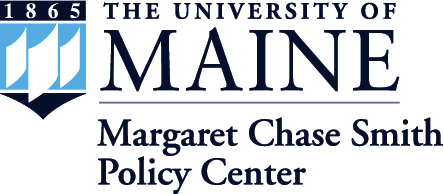Abstract
A multitude of macroalgae (i.e., seaweed) species that are harvested in Maine are economically and ecologically important. Currently, management of these resources in Maine is focused on rockweed (Ascophyllum nodosum). This seaweed grows in abundance along intertidal rocky shores and provides a number of benefits including serving as habitat and nursery for many species including fin-fish, coastal protection from storms and sea level rise, carbon sequestration, and is a harvestable natural resource used primarily in fertilizer and animal feed production. It is critical that these functions and benefits are maintained and harvesting activities managed to ensure a sustainable fishery and healthy ecosystem. In 2014, Maine drafted a rockweed fisheries management plan; however, this plan has yet to be adopted. The delay in adoption is now an opportunity to re-examine the plan from an ecosystem-based management (EBM) perspective. We compare EBM strategies to the existing rockweed fisheries management plan, and identify areas of synergy as well as gaps in the management of Maine’s seaweeds and harvesting activities. Based on this analysis we propose Maine adopt an EBM approach and strategies for wild as well as farmed seaweeds.
First page
70
Last page
77
Rights and Access Note
This Item is protected by copyright and/or related rights. You are free to use this Item in any way that is permitted by the copyright and related rights legislation that applies to your use. In addition, no permission is required from the rights-holder(s) for non-commercial uses. For other uses you need to obtain permission from the rights-holder(s).
DOI
https://doi.org/10.53558/OFFC8742
Recommended Citation
Webber, Hannah M. , Stefan Claesson, Shep Erhart, Catherine V. Schmitt, and Jessica F. Muhlin. "Maine’s Potential to Be a Global Leader in Sustainable Seaweed Harvesting and Management." Maine Policy Review 32.2 (2023) : 70 -77, https://digitalcommons.library.umaine.edu/mpr/vol32/iss2/12.
Creative Commons License

This work is licensed under a Creative Commons Attribution-NonCommercial-No Derivative Works 4.0 International License.
